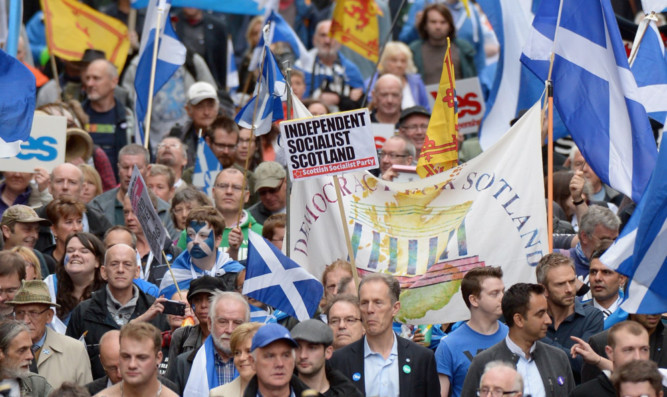A majority of people born in Scotland voted for independence, according to the most extensive research carried out into last year’s referendum.
Academics found that almost 53% of Scots backed Yes in September, compared to just 28% from the rest of the UK and 43% of people from outside of Britain.
The data from the Scottish Referendum Survey, conducted by the universities of Edinburgh, Glasgow and Essex, also found the offer of more powers for the Scottish Parliament only influenced 3.4% of those who voted No despite former First Minister Alex Salmond claiming the so-called vow was decisive.
Considerably larger motivating factors were “feeling British/believe in Union” (29.5%), “too many unanswered questions” (27.8%), and “independence would make Scotland worse off” (26.3%).
A little more than 5% “wanted to vote Yes but it seemed too risky” while roughly the same amount said they “don’t trust Salmond.”
By contrast, when asked to identify what they believed had motivated No voters, 41.3% of Yes voters replied “Westminster leaders misled Scots over more powers”, while 17% thought it was because of “press/BBC bias towards No”.
Other reasons included the “electorate lost its nerve” (11.8%), “Warnings from banks/business about Yes” (11.2%) and “Better Together ran a negative campaign” (7.9%). Only 0.9% suggested “Yes Scotland ran a poor campaign”.
According to the study, most men voted Yes whilst most women voted No, Protestants were more likely to want to stay in the Union but Catholics were more likely to back a split, support for independence dropped as people got older, and working class people were the biggest social sector supporting leaving the UK.
Professor Ailsa Henderson, a co-author of the study, said: “There is clearly a divergence between the perception among Yes voters that the offer of more powers was an important aspect of the campaign and the reality of how No voters reached their decision.
“The issue of ‘more powers’ is not cited as the main reason for voting No.”
